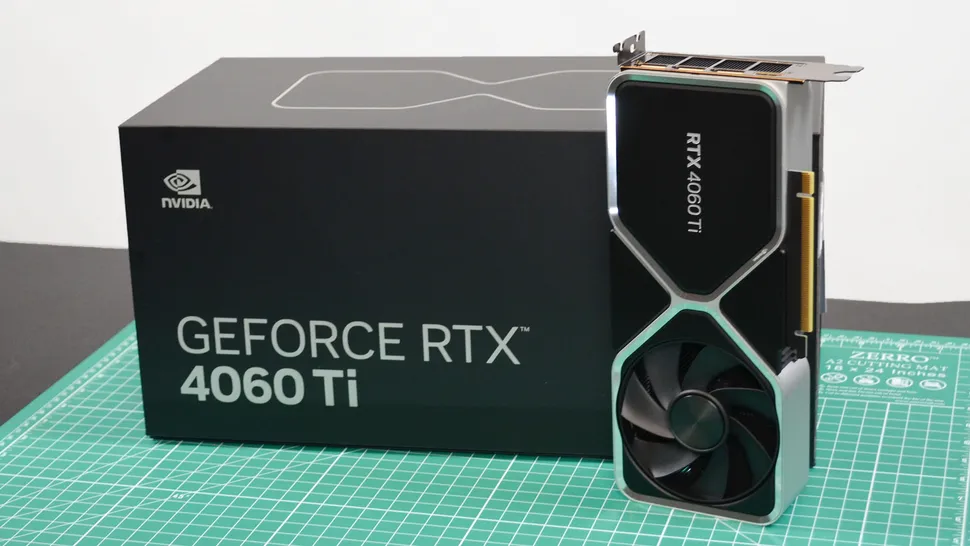 |
| (Image credit: Future / John Loeffler) |
Normally, we receive advanced samples of a new graphics card so we can have a review ready at launch, just like most of the publications you trust. But this time around, Nvidia has clearly failed to give any tech websites an advanced review sample of its latest card, the 16GB Nvidia GeForce RTX 4060 Ti, and instead opted to release it without any promotion or reviews whatsoever. This means that any tech journalists interested in testing and reviewing it will have to purchase a card for themselves.
We’ll of course see reviews coming out in the next few days or even weeks once writers get their hands on one. It’ll be interesting to see how the doubled VRAM, which is the only difference between the 8GB and 16GB versions, will impact performance. For instance, the doubled VRAM should mean a higher framerate in memory-intensive PC titles, but the 16GB card has the same 128-bit memory bus and PCIe Gen4 x8 interface as the 8GB version, and that may significantly impact performance.
Why did Nvidia ignore the reviewers?
The number one reason why Nvidia didn’t bother to send out review samples is most likely due to the extremely awful sales of its 8GB RTX 4060 Ti. If that version underwhelmed at retailers despite having a generally good review reception, then sending out samples for the 16GB version wouldn’t have much impact on sales.
Of course, there’s another reason why Nvidia may not have bothered and this points to a general apathy toward graphics cards as a whole. Currently, the manufacturer is making bank on AI-related projects and products like Neuralangelo, an AI model that transforms 2D video clips into ‘extremely high fidelity’ 3D structures, and Project Helix, which is a team-up between Dell and Nvidia that brings AI-powered hardware solutions to enterprises.
These investments, as well as its tensor-core technology, have helped bring Nvidia to its current trillion-dollar value. Essentially, Nvidia is really the only company right now with tech sophisticated enough to carry out matrix multiplication efficiently, which is absolutely essential for any machine learning process. This naturally makes Nvidia extremely valuable, so much so that it does not seem bothered that many of its graphics cards are tanking.
What this means for Nvidia’s future in graphics cards production is unknown, but we’re already seeing a consequence of that devil-may-care attitude in the form of less-informed consumers due to the lack of reviews.
from TechRadar - All the latest technology news https://ift.tt/NIeYR6J




